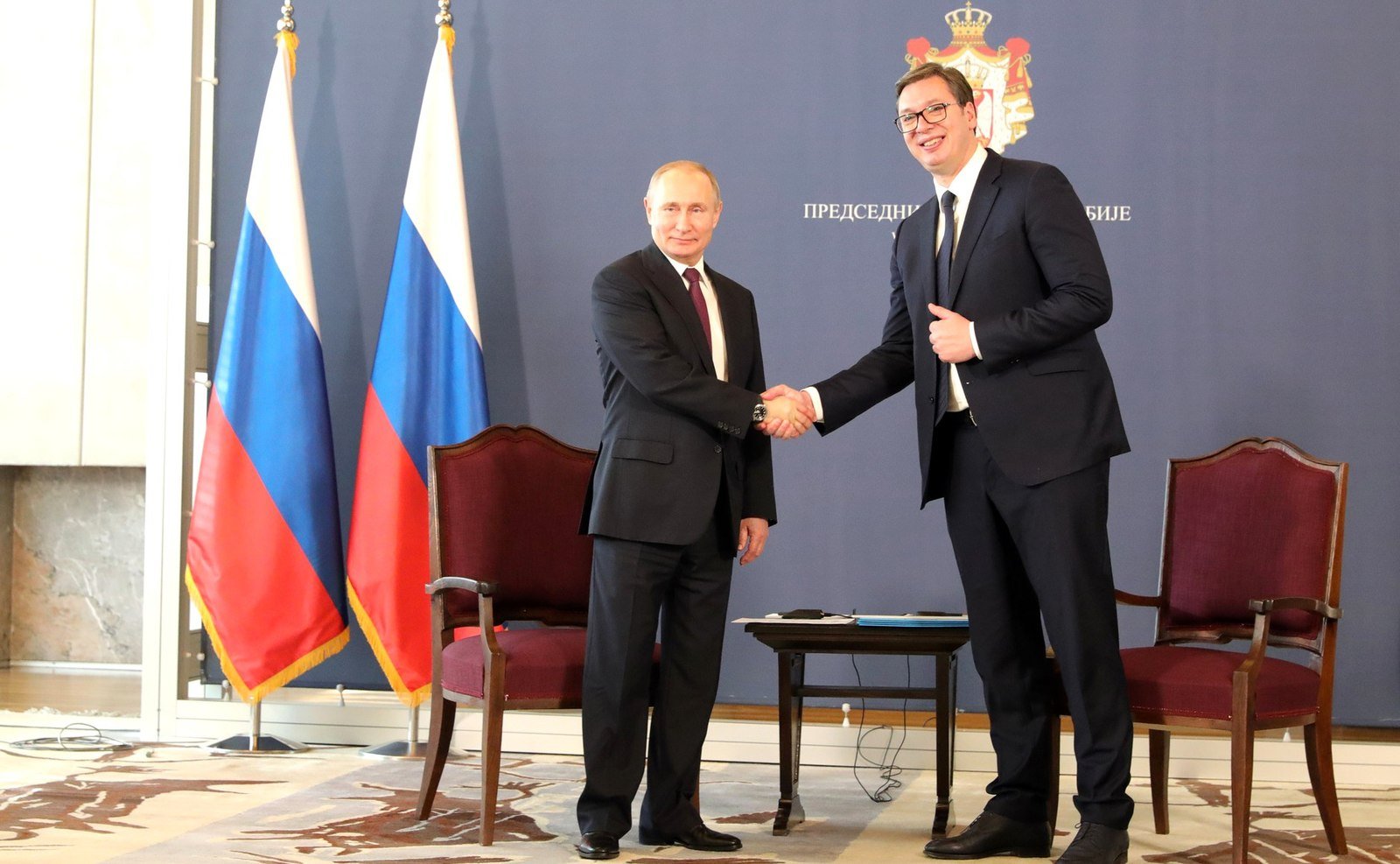Serbia Acquires Russian Anti-Drone System Amid EU Sanctions
Serbian president Aleksander Vucic has resisted pressure to fully sever ties with Russia amid its war in Ukraine (Wikimedia Commons).
Serbia’s populist president, Aleksander Vucic, announced on February 14 that the Russian anti-drone system for electronic jamming is now in Belgrade’s possession. Since the Russian invasion of Ukraine in 2022, Serbia has refused to align with EU political and economic sanctions on Moscow, continuing cooperative agreements with Russia.
Although Belgrade condemned Russia’s invasion, Serbia remains reliant on Russian gas imports and refuses to join international efforts to blockade the Russian economy. Although formally seeking EU membership, Serbia has repeatedly ignored calls to align its foreign policy with the 27-nation bloc. President Vucic faces internal and public critique over his autocratic rule and his ongoing ties to the Kremlin. Many EU member states believe Serbia’s membership bid should be suspended until it complies with the bloc’s policy stance on Russia.
Following NATO’s support of Kosovo’s declaration of independence in 1999, Moscow aligned its stance on Kosovo to support the territorial ambitions and provincial claims of Serbia. Today Vucic fears aggression towards Serbia beyond the Balkans. As he stated before Serbia’s national day, the aggression Serbia faced in 1999 would not be feasible today, as “[opposition forces] would have to attack from outside, from a distance, from the Adriatic or Mediterranean Sea, with cruise missiles.” Thus, Vucic attempts to justify imports of the Russian electronic warfare system.
Despite Serbian airspace being almost surrounded by NATO members actively sanctioning Russia, the Russian anti-drone apparatus reached Serbia in late 2023. According to the Sarajevo Times, President Vucic understands the new military system, known as Repellent, to be “in our hands.”
Alongside strengthening military ties, Belgrade signed a cooperative health agreement with Moscow earlier this month, threatening the cohesion of European sanctions and misaligning foreign policy among EU members. The Serbian budget paid for “701 complex weapons systems from domestic industry,” with plans to procure 850 more in the coming years.

